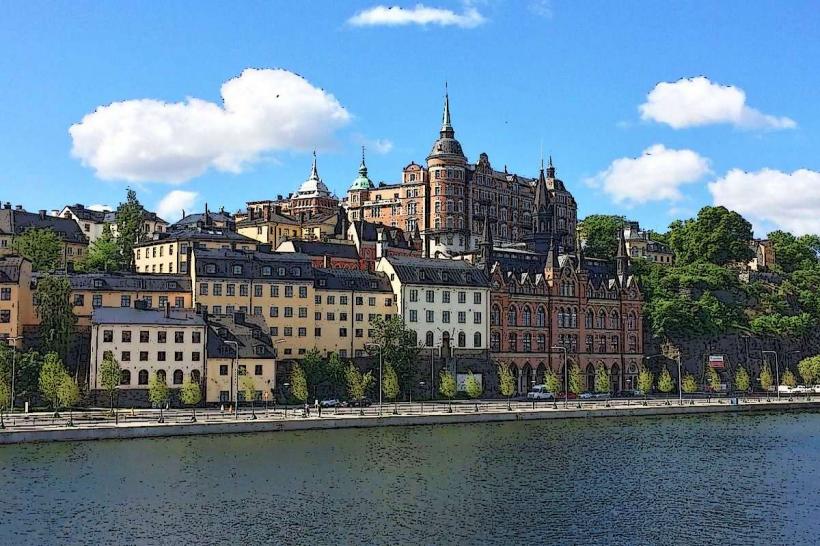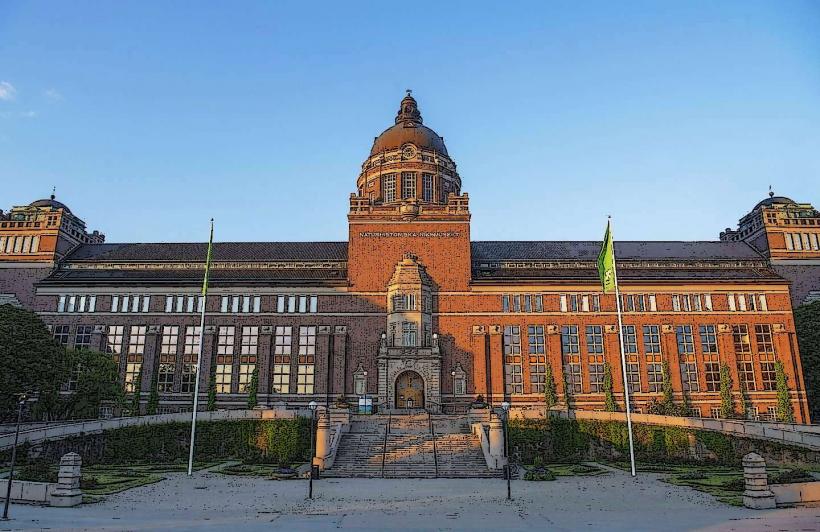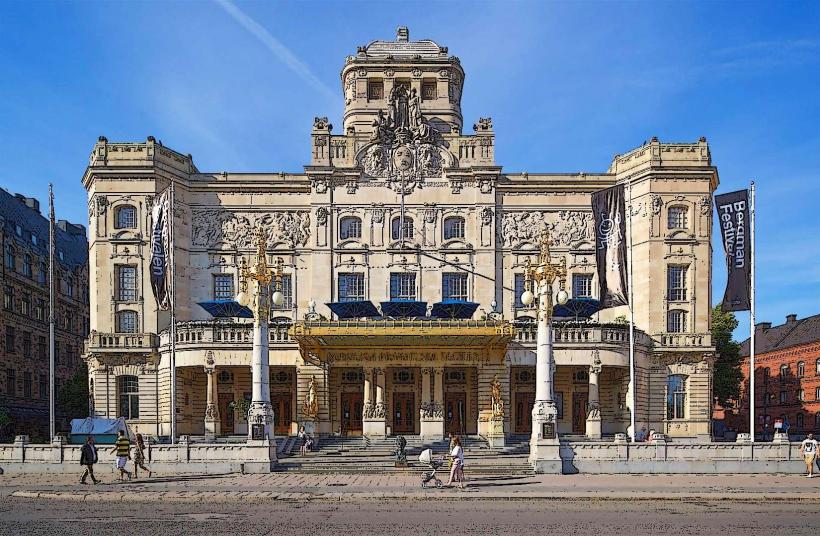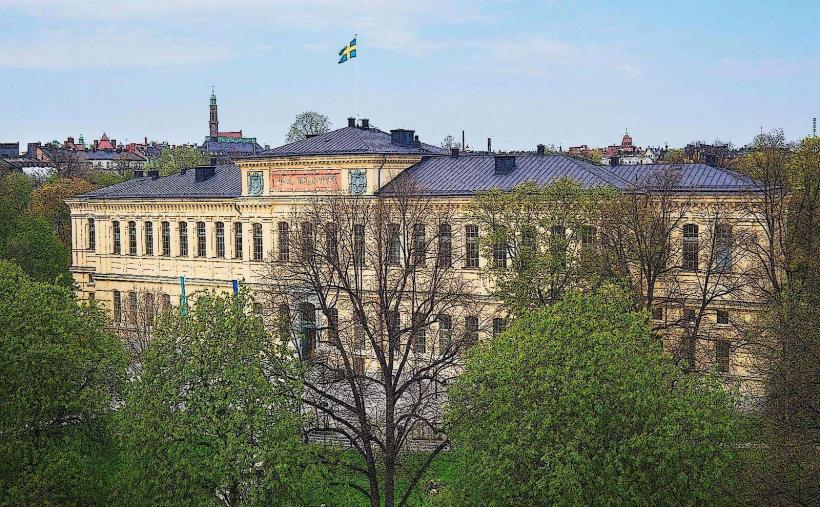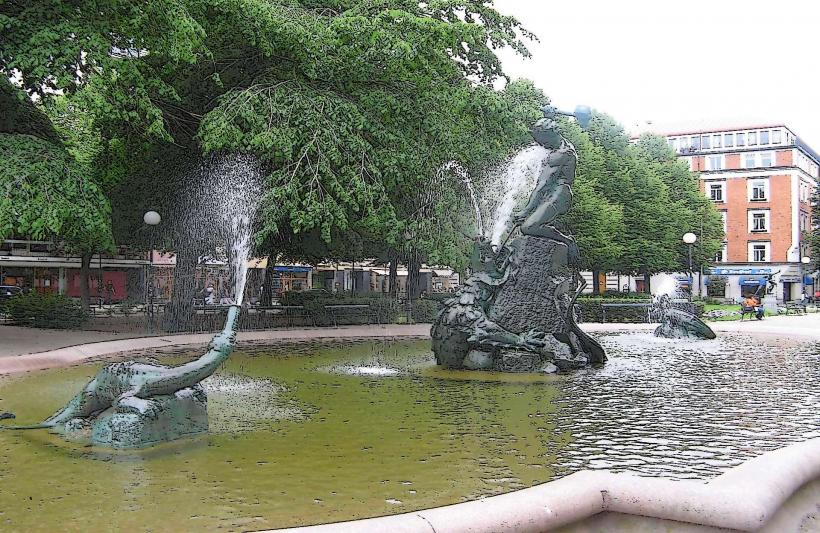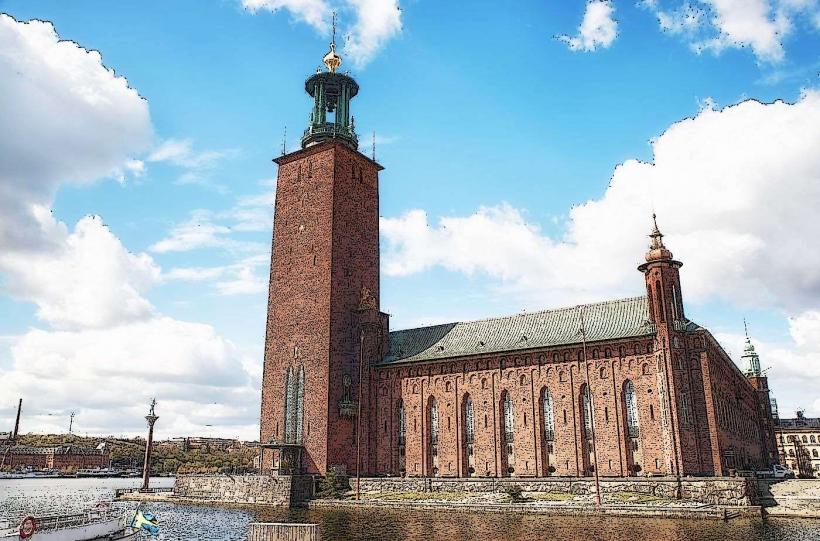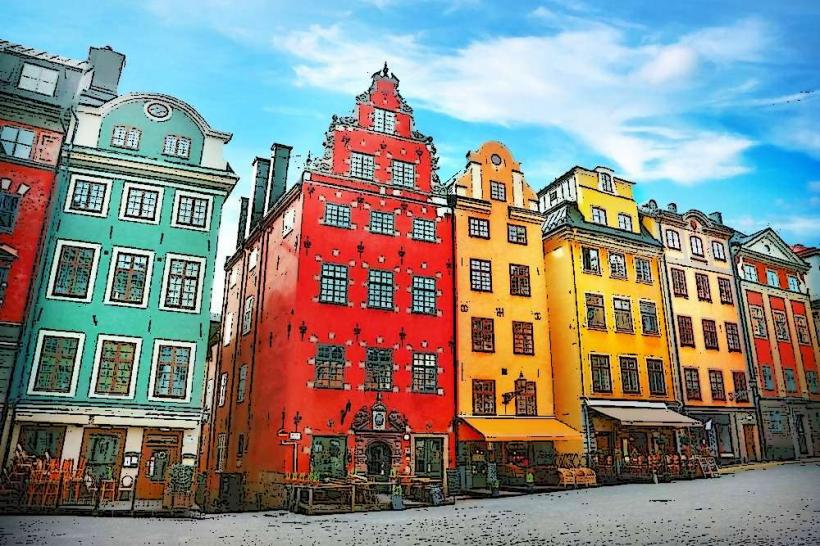Information
Landmark: Royal Swedish Academy of SciencesCity: Stockholm
Country: Sweden
Continent: Europe
Royal Swedish Academy of Sciences, Stockholm, Sweden, Europe
The Royal Swedish Academy of Sciences (Swedish: Kungliga Vetenskapsakademien, KVA) is one of Sweden’s most prestigious institutions dedicated to the promotion and development of science, technology, and knowledge. Established in 1739 by a group of Swedish scientists, it has played a significant role in advancing scientific research and recognizing exceptional achievements in various scientific fields.
1. History of the Royal Swedish Academy of Sciences
- Founding: The Royal Swedish Academy of Sciences was founded by Gustav III of Sweden, who envisioned an institution that would support and encourage scientific research. Initially, the academy's focus was on fostering the study of natural sciences, mathematics, and engineering, with the goal of advancing Sweden's scientific stature on the global stage.
- Role in Swedish Science: Throughout the centuries, the Academy has been instrumental in supporting and developing Sweden's scientific community. It has fostered a close relationship with the Swedish monarchy and government, often advising on policy matters related to science and innovation.
- Notable Members: Over the years, the academy has had many distinguished members, including Carl Linnaeus (the famous naturalist and botanist), Anders Celsius (the inventor of the Celsius temperature scale), and Alva Myrdal (the Swedish diplomat and Nobel laureate). The Academy has continued to be a center for Sweden's scientific community and a promoter of science across the globe.
2. Key Functions and Objectives
- Scientific Advancement: The Academy’s primary goal is to promote scientific knowledge, supporting research across various disciplines, including natural sciences, mathematics, engineering, and economics. It provides grants, funds, and fellowships to support scientific research and innovations.
- Nobel Prizes: One of the most famous roles of the Royal Swedish Academy of Sciences is its responsibility for awarding the Nobel Prizes in Physics, Chemistry, and Economic Sciences. The Nobel Prizes were established in the will of Alfred Nobel, the inventor of dynamite, and are awarded annually by the Academy. These prestigious awards have helped solidify the Academy’s global reputation.
- Publications and Reports: The Academy also publishes research findings, scientific reports, and other academic materials to disseminate knowledge. This includes the "Proceedings of the Royal Swedish Academy of Sciences", a journal that publishes cutting-edge scientific research.
- Promoting International Cooperation: The Academy plays a role in fostering international collaborations and partnerships between Swedish scientists and researchers from around the world. It also supports interdisciplinary research efforts on global challenges, including sustainability, climate change, and technological advancements.
3. Nobel Prize Connection
- Awarding Nobel Prizes: The Nobel Prize in Physics, Nobel Prize in Chemistry, and Sveriges Riksbank Prize in Economic Sciences in Memory of Alfred Nobel (often referred to as the Nobel Prize in Economics) are all awarded by the Academy. The Nobel Prizes are presented annually in Stockholm, where the Academy’s members gather to announce the laureates.
- Nobel Ceremony: The Nobel Prizes are awarded in a ceremony held every December, where the laureates receive their medals, diplomas, and a monetary award. The Academy’s members participate in the deliberations and discussions that lead to the selection of Nobel Prize winners.
- Nobel Committees: The Academy’s Nobel Committees in the fields of physics, chemistry, and economics are responsible for reviewing nominations and determining the winners. These committees consist of respected scientists in their respective fields.
4. Membership and Structure
- Members: The Royal Swedish Academy of Sciences consists of approximately 250 Swedish members and foreign members who are distinguished scientists, researchers, and experts in various fields. The members are elected based on their significant contributions to the scientific community. The academy includes individuals from various disciplines, including physics, chemistry, mathematics, economics, and engineering.
- Honorary Members: Some notable international figures, including Nobel laureates and world-renowned scientists, are invited to become honorary members of the Academy.
- President and Board: The Academy is led by a President, who is elected for a fixed term. The President is responsible for overseeing the Academy's activities, while a board of directors supports its administrative functions. The board comprises elected members who handle the day-to-day affairs of the Academy.
5. Building and Location
- The Royal Swedish Academy of Sciences is housed in Stockholm, Sweden, in a historic building located near the Gamla Stan (Old Town). The Academy’s headquarters, The Royal Swedish Academy of Sciences Building, is situated on Lilla Frescativägen, close to the Stockholm University. This prestigious location serves as a base for its activities, including meetings, lectures, and various events.
6. Notable Awards and Activities
- Sveriges Riksbank Prize in Economic Sciences in Memory of Alfred Nobel: In addition to the traditional Nobel Prizes, the Academy awards the Nobel Prize in Economics, which was established by the Swedish central bank (Sveriges Riksbank) in 1968 to honor exceptional contributions in the field of economics.
- Research Grants and Fellowships: The Academy provides financial support to research institutions and offers fellowships for young scientists to advance their careers in scientific research. It also supports scientific conferences, symposia, and workshops to foster academic collaboration.
- Public Engagement and Education: The Academy is involved in various public outreach efforts to promote scientific literacy and inspire the next generation of scientists. It organizes public lectures, events, and educational programs to engage the public with scientific advancements.
7. Conclusion
The Royal Swedish Academy of Sciences is a key institution in the global scientific community, known for its long-standing commitment to advancing scientific knowledge and fostering innovation. Its association with the Nobel Prizes has elevated its international prominence, while its dedication to supporting research and scientific development continues to make a lasting impact on society. Through its work, the Academy contributes significantly to the scientific and cultural heritage of Sweden and the world.



